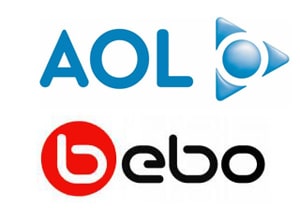AOL’s acquisition of Bebo for a staggering $850 million in 2008 can be likened to a high-stakes poker game, where the odds were carefully calculated, and the outcome remained uncertain. This monumental buyout not only underscored AOL’s ambition to bolster its position in the evolving landscape of social networking but also illuminated the unique appeal of Bebo, a platform that resonated with a youthful demographic craving community and creativity.
At its core, Bebo was more than just a social network; it was a digital canvas, providing a vibrant space for users to express themselves through personalized profiles, multimedia elements, and interactive features. In a world increasingly characterized by sterile digital interactions, Bebo thrived as a sanctuary where individuality flourished, unshackled from conventional norms. This value proposition is perhaps what caught AOL’s keen gaze, as platforms were vying for user engagement amidst a growing cacophony of online voices.
In the years leading up to the acquisition, Bebo had carved out a significant niche within the social media ecosystem, particularly among teenagers and young adults in the UK and Ireland. It offered an intuitive interface that championed user-friendly design and seamless connectivity with friends. The allure of Bebo lay not just in its aesthetic appeal, but in its ability to foster genuine social interaction—a fundamental aspect that modern cyberspace was beginning to overlook. Like a pot of gold at the end of a rainbow, Bebo represented a lucrative investment opportunity for AOL to diversify its portfolio and capture the next generation of internet users.
However, this acquisition was not merely a financial maneuver; it resonated with deeper social dynamics, as companies rushed to adapt to the meteoric rise of social media. AOL, once the titan of the early internet, was confronted with an imperative to reinvent itself in a landscape dominated by nimble competitors. The buyout paved the way for AOL to integrate Bebo’s innovative features into its existing framework, thereby enhancing its service offerings and reinvigorating its brand identity.
Yet, as with any grand venture, the outcomes were mixed. While AOL’s acquisition was initially seen as a strategic masterstroke, Bebo would struggle to maintain its initial momentum amidst a relentless influx of rivals like Facebook and Twitter. What began as an expeditious expansion might have also served as a cautionary tale about the ephemeral nature of technological trends and the volatility of the digital marketplace.
Ultimately, AOL’s $850 million buyout of Bebo encapsulated both the ambitious vision within the tech industry and the unpredictable currents that define it. While the saga of Bebo may have faded into the annals of digital history, its legacy remains etched in the formative dialogue about social networking—a poignant reminder of the volatile, yet exhilarating journey that characterizes the digital landscape.
